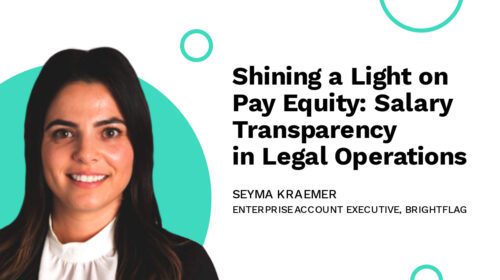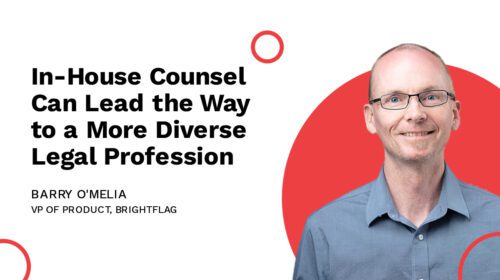The Intersection of Neurodiversity and Legal Operations: Opportunities and Obstacles
I’ve always known I was different. It wasn’t until I was in my late 20s that I understood why. I have Autism, and I’m on the neurodiversity spectrum along with other people whose brains work a little differently—those with ADHD, dyslexia, and dyscalculia, to name a few.
As an Autistic woman, my experience isn’t unique. We’re often referred to as the “invisible women and girls with Autism.” Our symptoms are inherently different than male Autistics, and this often results in late diagnosis—or even no diagnosis at all for some.
Because of my late diagnosis, I spent the first 9 years of my legal career navigating a world that was most definitely not made for me. Today, I choose to share what I’ve learned on my journey in the hopes of ensuring a better experience for other neurodivergent legal professionals.
Working as a Neurodiverse Person
When I started my career in litigation 16 years ago, that environment allowed me to thrive in a lot of ways – The clearly written rules, deadlines, and expectations gave me a sense of control I hadn’t experienced professionally up until this point. However, it also allowed me to hide behind an office door while I prepared responses to interrogatories, poured through discovery, and drafted pleadings.
It wasn’t until I moved in-house 10 years ago that I really noticed how different I was. Working in-house is much more ambiguous than in the world of litigation. Vague instructions, unclear priorities, and learning to balance business and legal risk left me feeling like I didn’t belong. Underneath the carefully developed façade I showed at work, I was oftentimes struggling to hold it together.
Looking back, there are so many things I wish could have told my younger self. But I think more about the things I wish my legal teammates knew before learned about my own Autism:
We don’t want special treatment.
Asking for accommodations is hard when you don’t know what you need. It’s even harder when you don’t want people to think you’re getting some kind of special treatment. We all deserve access to tools and resources that make us successful in the workplace, regardless of the type or severity of our disability.
According to the Job Accommodation Network, which has run employer surveys on job accommodations for the Department of Labor since 2004, 56% of employers said the accommodations needed by their employees cost absolutely nothing. Providing accommodations lead to increased employee retention and productivity, improved company morale, and increased profitability.
Not to mention, many of the commonly requested accommodations that benefit Autistics, including flexible work arrangements, clear (written) communication, allowing headphones in the workplace, and extra time to process changes, ultimately benefit all employees.
We all have different strengths and weaknesses.
Like any other subset of the population, the strengths and weaknesses of Autistics vary widely. Unlike the tropes we see in the media, we aren’t all savants with poor social skills. If you work with someone that has autism, be sure you get to know the person before making stereotypical inferences about who they are and what they are capable of.
We mask our behavior as a survival mechanism.
From a young age, we’re all taught certain behaviors and traits that are acceptable while others are not. As Autistic people, we cannot change who we are, but we can change our innate behaviors to appear less Autistic to meet neurotypical expectations.
The problem with masking is that it’s exhausting, and it’s not representative of who we truly are. It’s far more common for Autistic women to mask than Autistic men, and ultimately, those who mask are more likely to struggle with mental health issues.
We are more likely to struggle with our mental health than neurotypical people.
About 20% of the adult population struggles with their mental health. For Autistic adults, that number skyrockets to 70%. From masking to Autistic burnout, the unique challenges faced by Autistic adults clearly have a strong correlation with our mental health.
Though employers have made great strides in supporting the mental health of their employees in the workplace, poor mental health is still a real problem impacting job performance and productivity, with a bottom-line impact on revenue, profitability and competitive edge.
Conclusion
With one-third of our life spent at work (and let’s be honest, it’s probably higher than that for many of us legal professionals), it’s important that we are ALL able to bring our full selves to work.
Employers owe it to all of us to make the workplace psychologically safe, equitable, and supportive of us all, regardless of ability. And we owe it to ourselves to advocate for what we need to be our best selves at work, not just the masked self that makes others comfortable.



